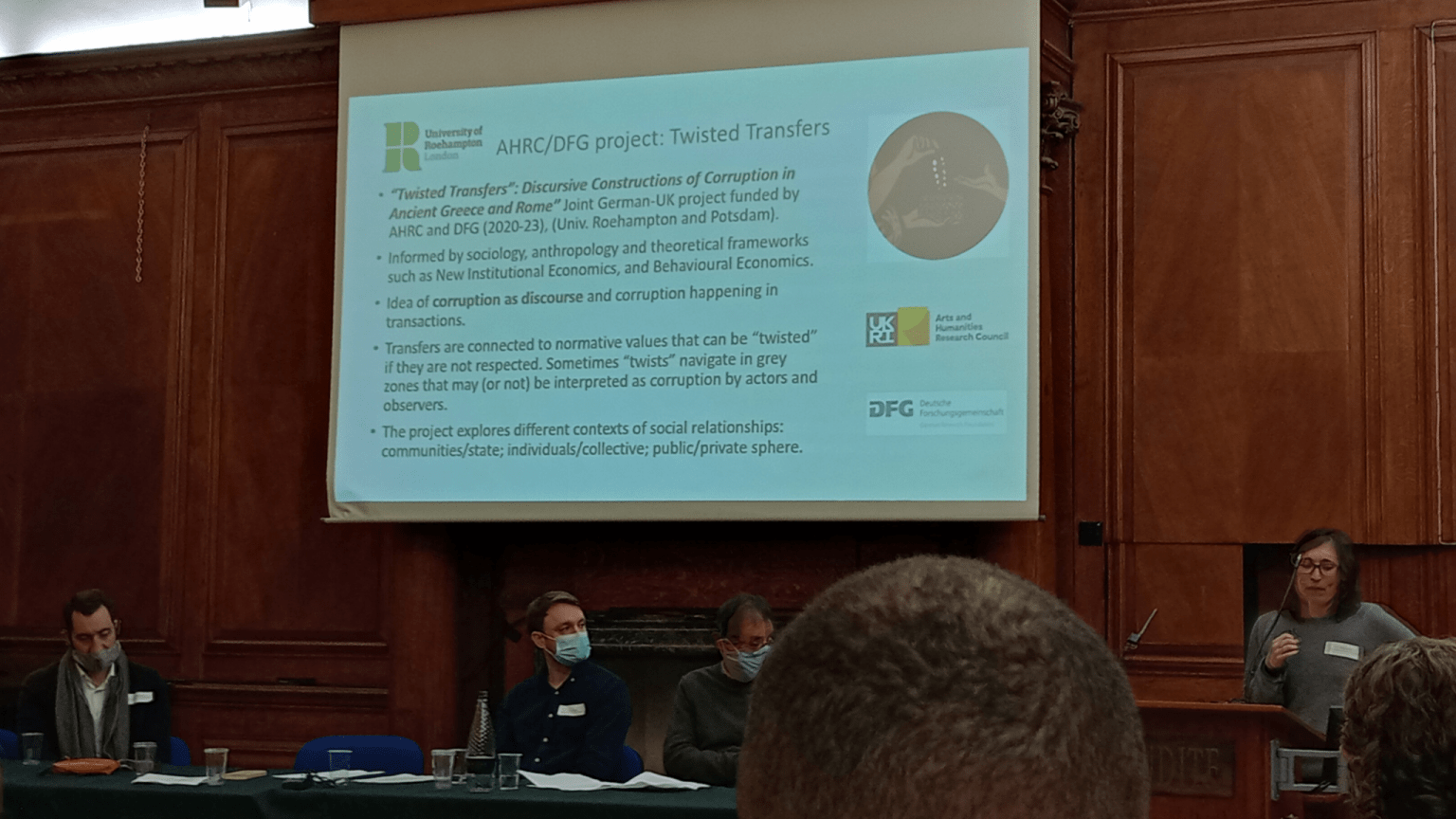A Reflection on the Knowledge Exchange Centre launch by Mark Wilson
- Wednesday, January 5, 2022

Mark Wilson is a Roehampton history PhD student. His research focuses on the intersection of printed propaganda and political thought at the time of Parliament in the 1570s and early 1580s. In this blog, he reflects on the launch of The School of Humanities and Social Sciences Research and Knowledge Exchange Centres launch event, in Grove House, on the afternoon of Wednesday 24 November 2021…
“The Research and Knowledge Exchange Centre launch was an inspiring and invigorating example of what the future holds for the changing nature of research globally and at Roehampton. With interdisciplinary approaches to work, knowledge exchange and the ever-expanding links between all sectors and academia, the launch was successful in emphasising the many ways forward. It underlined that at Roehampton, students can flourish in an exciting, holistic research environment.
On a personal note, as a history PhD student engaged in research at the intersection of literary analysis and political history, I found the event was an exciting endorsement of my own approaches to my discipline and subject areas. With my other ‘hats’ on, that of a both a secondary history teacher/private tutor and local (Green Party) councillor in Solihull, West Midlands, I was also intrigued and enthused to learn about research in the social sciences, theology, law and philosophy fields, amongst others. The presentations by the four centres: History and Classics; Literature and Inclusion; Equality, Justice and Social Change; and Practical Philosophy, Theology and Religion, emphasised the positive impact of our researchers across sectors and with an ever-expanding number of partners from all disciplines, genres, and fields. These centres herald an exciting future for research in the School of Humanities and Social Sciences. Just as importantly, the students who enrol at Roehampton, will join a vibrant, multicultural and inclusive research community.
I was both amazed and pleased to learn about the diverse research projects being tackled by my colleagues and we heard about many types of research from all centres within the School, from: ongoing research regarding animal cruelty in the Elizabethan Theatre; to examining sex workers’ experiences of domestic violence; drug trafficking and police in Central Asia; inequality and the built environment through history and the importance of the Humanities in a post-COVID world. The round table discussions with partners expanded on these themes, with colleagues in theology discussing their work with Operation Noah, a faith-led Climate Change campaign, History and Classics researchers discussing collaborations with teaching charities such as the Brilliant Club and Prince’s Teaching Institute and their value in addressing educational inequalities, the benefits of partnerships between literary scholars and arts and heritage organisations such as Keats’ House and the Paul Mellon Centre, and the impact of legal research on the rights of indigenous peoples in the Global South. Partners in education, local authorities, faith organisations, museums, social services, and charities, all testified to the benefit of working with Roehampton researchers and research teams.
The panels demonstrated that, to remain at the cutting edge of modern research, universities and other educational institutions need to engage with public, private, and voluntary sectors.
Gaining public trust and engagement with accessible yet expert research is an important objective, and one Roehampton will lead on in the future. To be part of this is truly exciting. I learned much at the launch event and it made me determined to take action within my own research methodology from the approaches I had learned about. As I engage with the worlds of Sixteenth Century, Elizabethan politics, political thought, and propaganda, I will endeavour to work with colleagues and partners across all disciplines where and when required; whilst attempting to ensure my work resonates with those across academia, education, politics, as well as the public.”